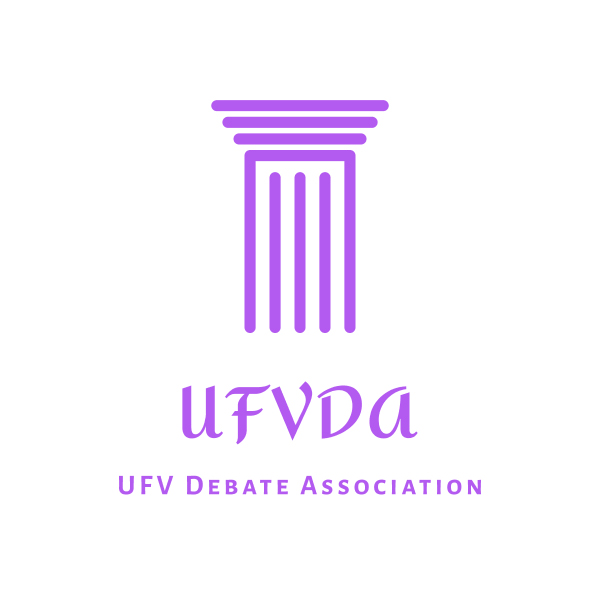I sat down with the University of the Fraser Valley’s Debate Association’s president Duncan Herd to talk about the club, upcoming events, and what students can expect at a Debate Association meeting.
When did your club form?
So we formed our club, conceptually, in February of 2019 but we became an officially registered association just this semester. We had our first AGM in March. We had a pretty decent turnout and we had our first debate on conscription in April.
What are your intentions with the club?
So the club isn’t just a space for people to safely debate topics. It’s also to foster creative thinking and confidence in the student body. We’ve noticed that there isn’t really a club or association that captures what we want to promote, truly. Most kinds of debates that happen on campus are just between friend groups or in association niche groups, right? That doesn’t truly reflect the academic and critical environment that the university wants to promote. We sought to fill that space.
Do you have specific rules that you follow during debates?
Yes, yes. So we follow what is called British Parliamentary style. It has a very structured debate style. There are particular roles that our panelists play, such as introductions, main arguments. The structure is very helpful, we found, for beginners who are worried about what they can say.
So it’s kind of like a safer space to debate, rather than having an argument with your friend in the middle of the hallway?
Yeah. A good way to describe it. We use arguments, we don’t have arguments.
What can a student expect at a debate club meeting?
Our first annual general meeting that’s coming up, we’re going to be basically introducing everybody to the rules, the process for becoming a member, our executive team, and then our upcoming dates for the debates themselves. We will post the outline online and make it accessible to people who are interested. We follow a standard debate structure where we have introductions and main arguments. We’re adding in a little bit of an intermission so people can talk about what they’ve just heard and to have some refreshments. Then we go on with closing arguments, rebuttal stage, and then a question period from the audience. It’s important to note that one doesn’t have to debate to be involved with the debates or with the association. You can just be a spectator. You can call out questions from the audience towards the ending period. So there’s no pressure.
What type of students should join?
All students, frankly. Naturally, the process of debate kind of caters towards the humanities: philosophy, political science, global development, criminology. But we’re not just looking for humanities students, we’re looking for all different kinds of students. One of the most interesting aspects of debate is having a variety of perspectives that can then be utilized in tangent with creative arguments. Science students, psych, and CYC (Child and Youth Care) students all have valuable inputs.
How can students benefit from joining?
Well, naturally, one thing that employers look for on resumes nowadays is extracurricular involvement as well as communication skills. The debate association fulfills both those requirements.
Do you have a set meeting time for your next debate?
Yes, it’ll be Oct. 7 at 5:30 p.m. in Everend Hall.
Do you know what you’re going to be debating?
Brexit!
Check out the Debate Association online through their Facebook page (@ufvda) or you can email Duncan directly at duncan.herd@student.ufv.ca. Students are welcome to inquire with potential topics and dates of upcoming meetings.
This interview has been edited for length and clarity.
Darien Johnsen is a UFV alumni who obtained her Bachelor of Arts degree with double extended minors in Global Development Studies and Sociology in 2020. She started writing for The Cascade in 2018, taking on the role of features editor shortly after.
She’s passionate about justice, sustainable development, and education.



